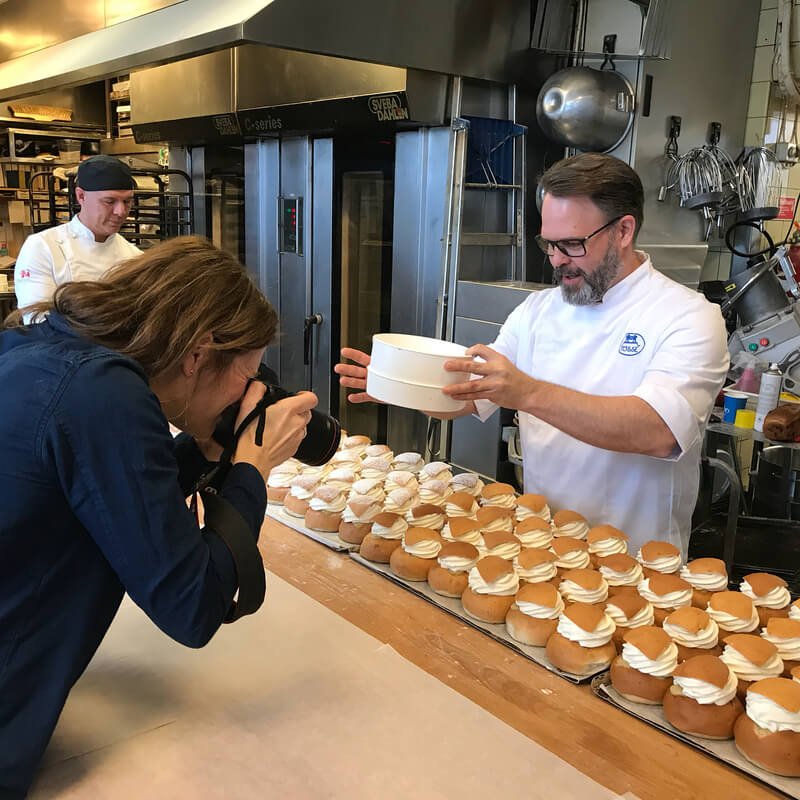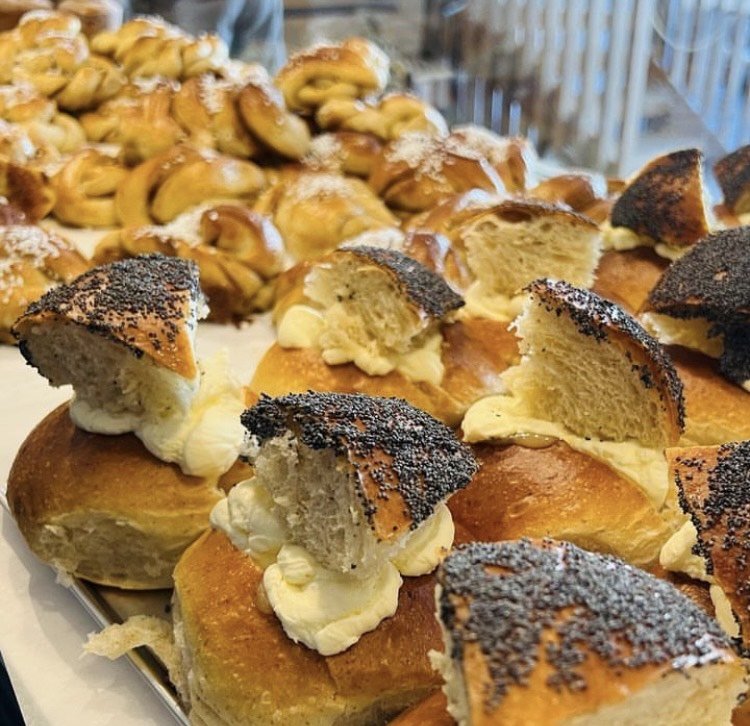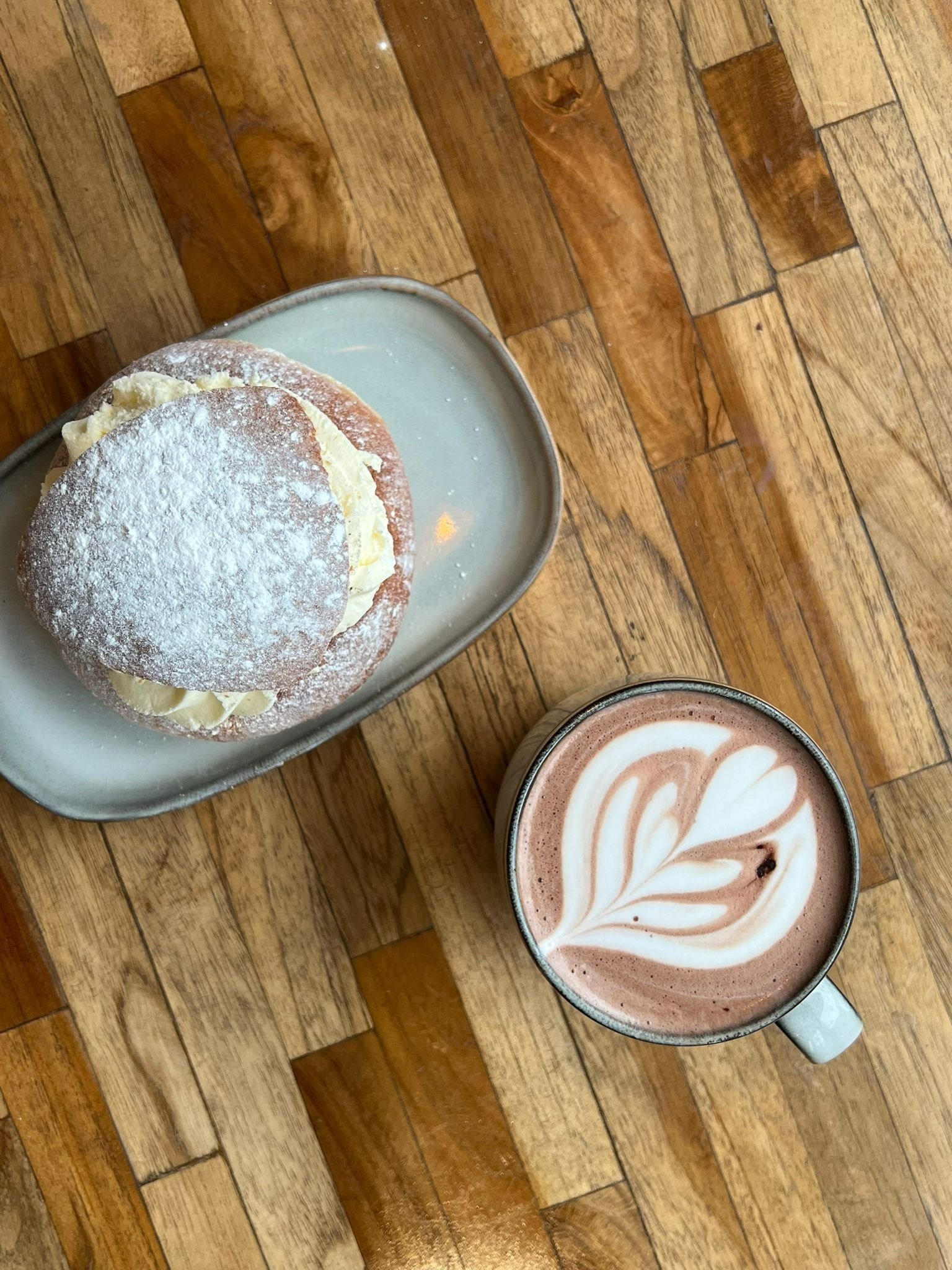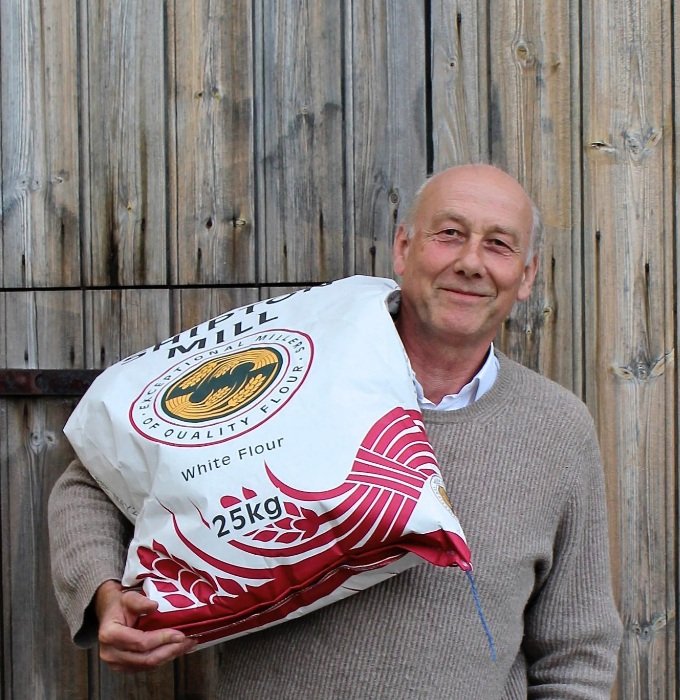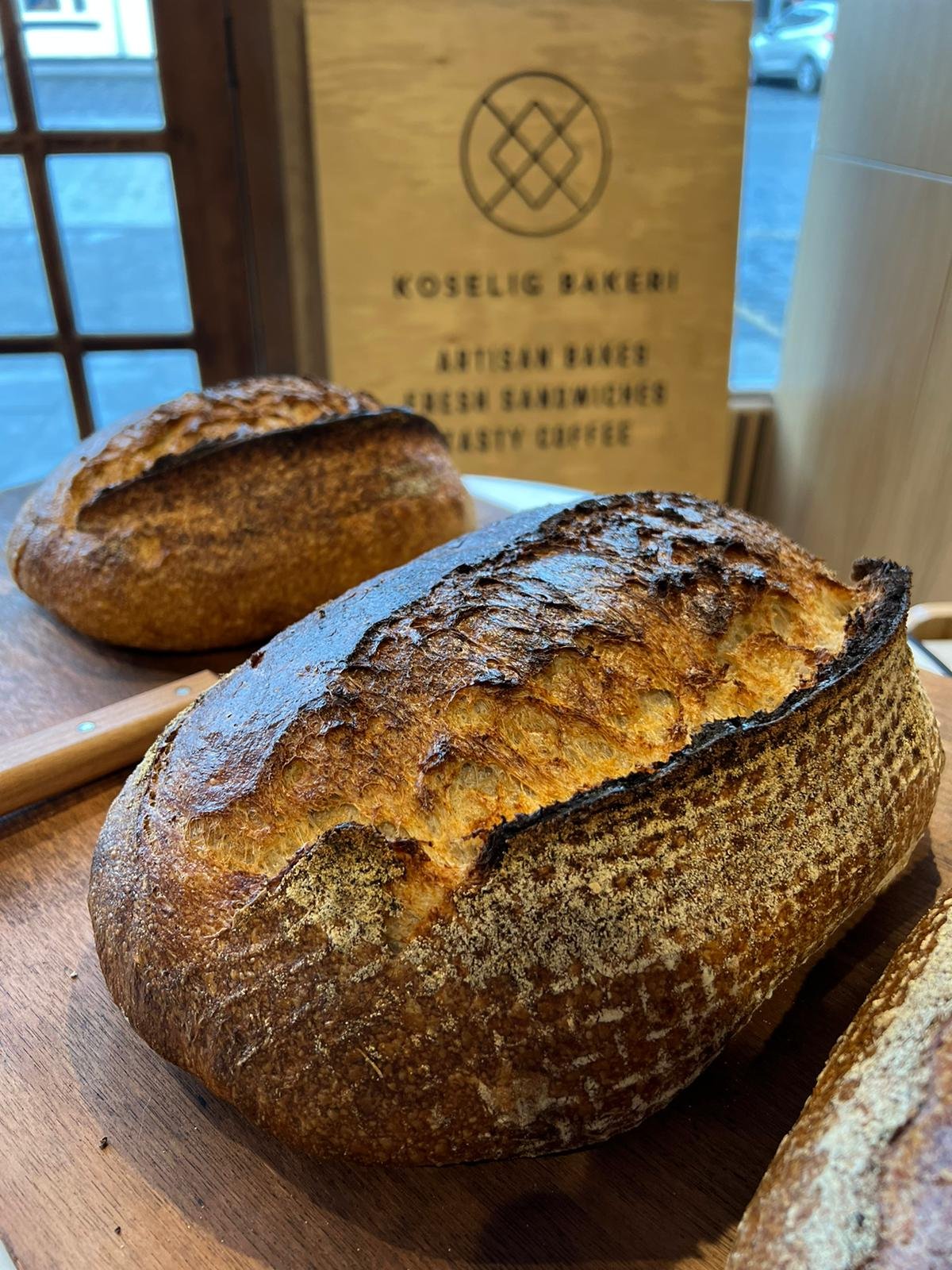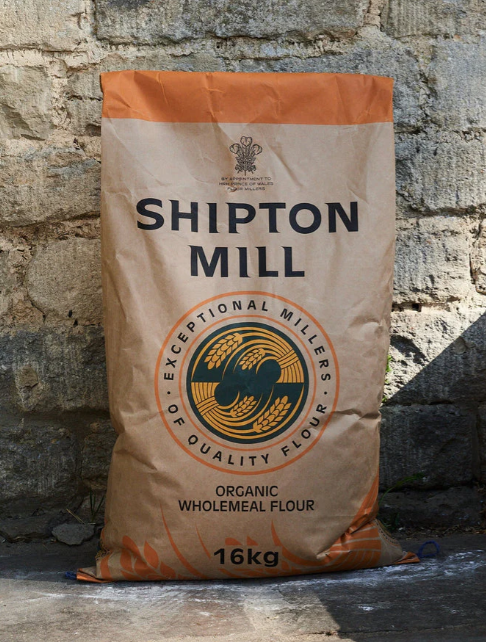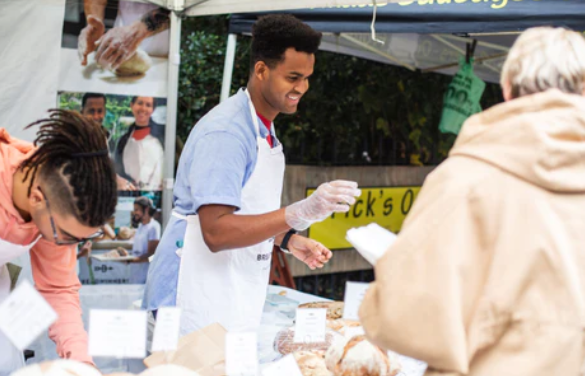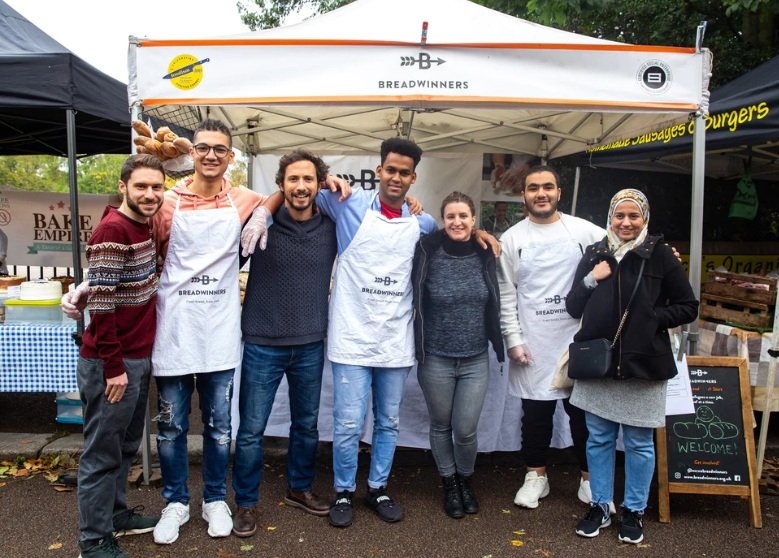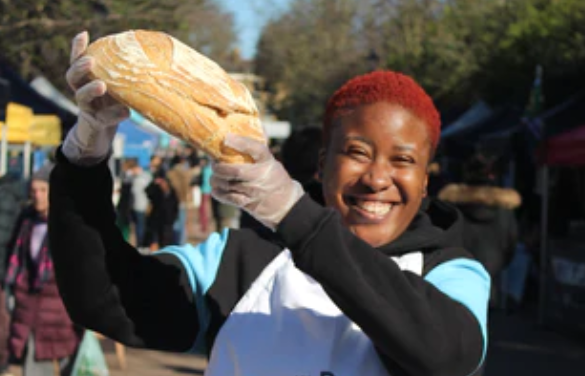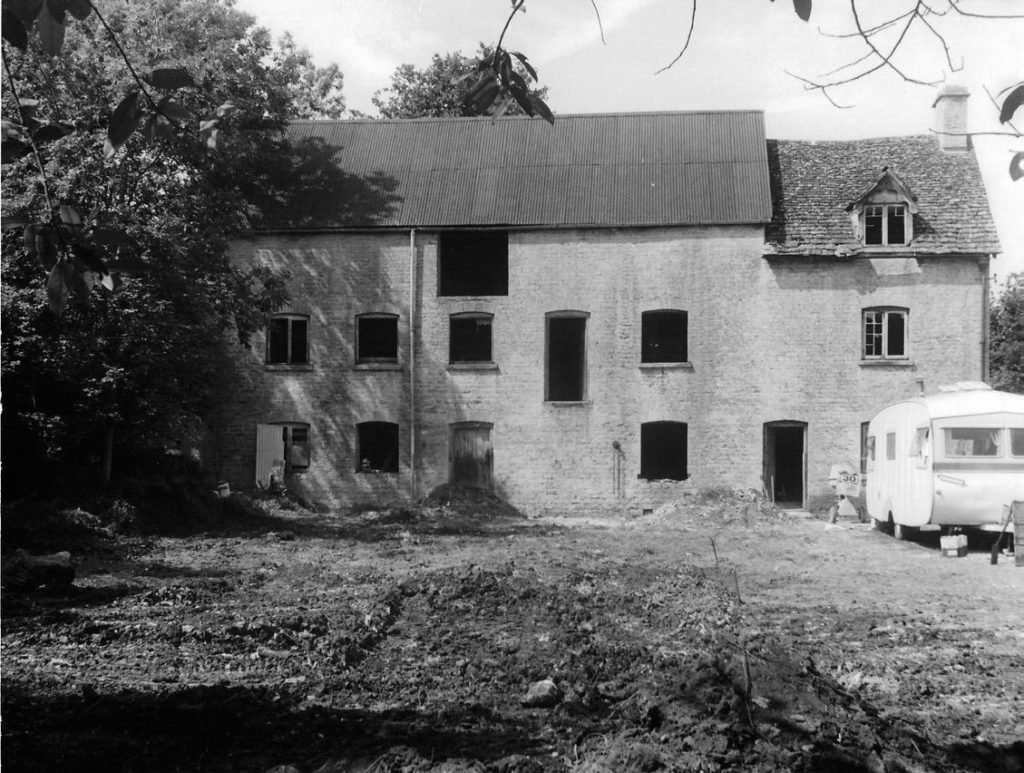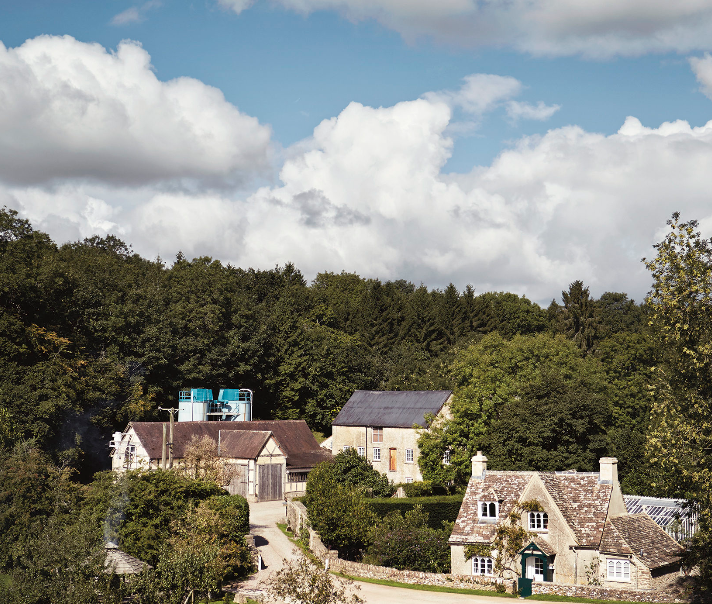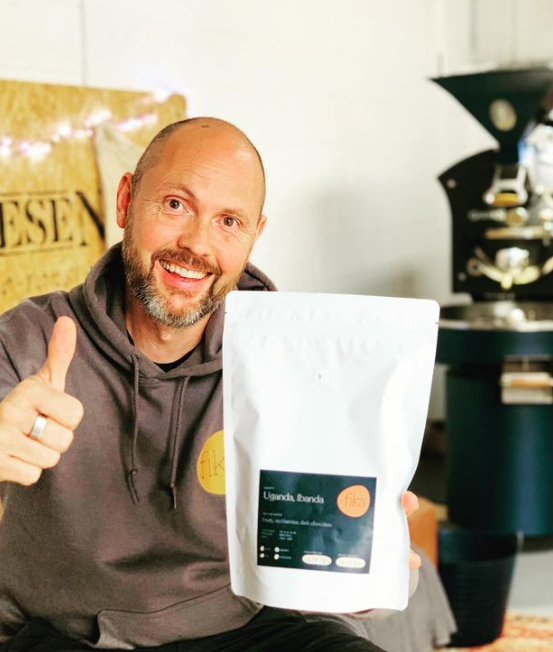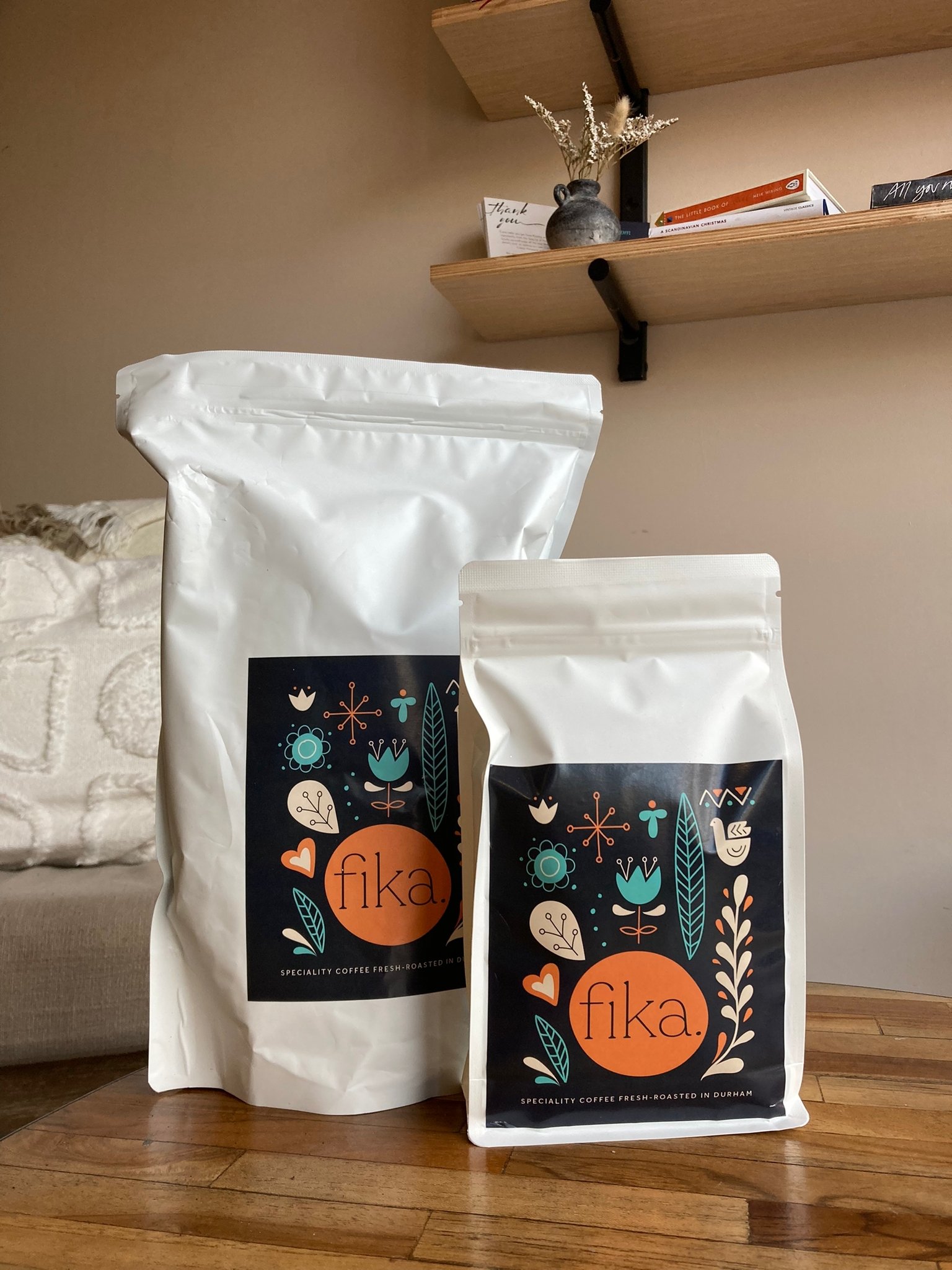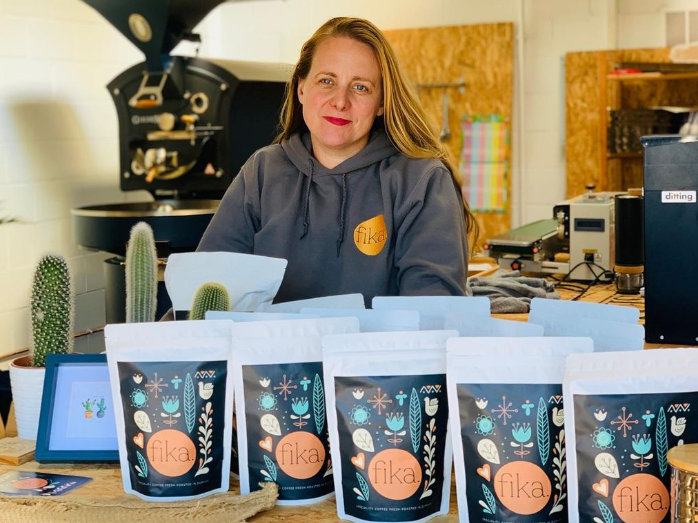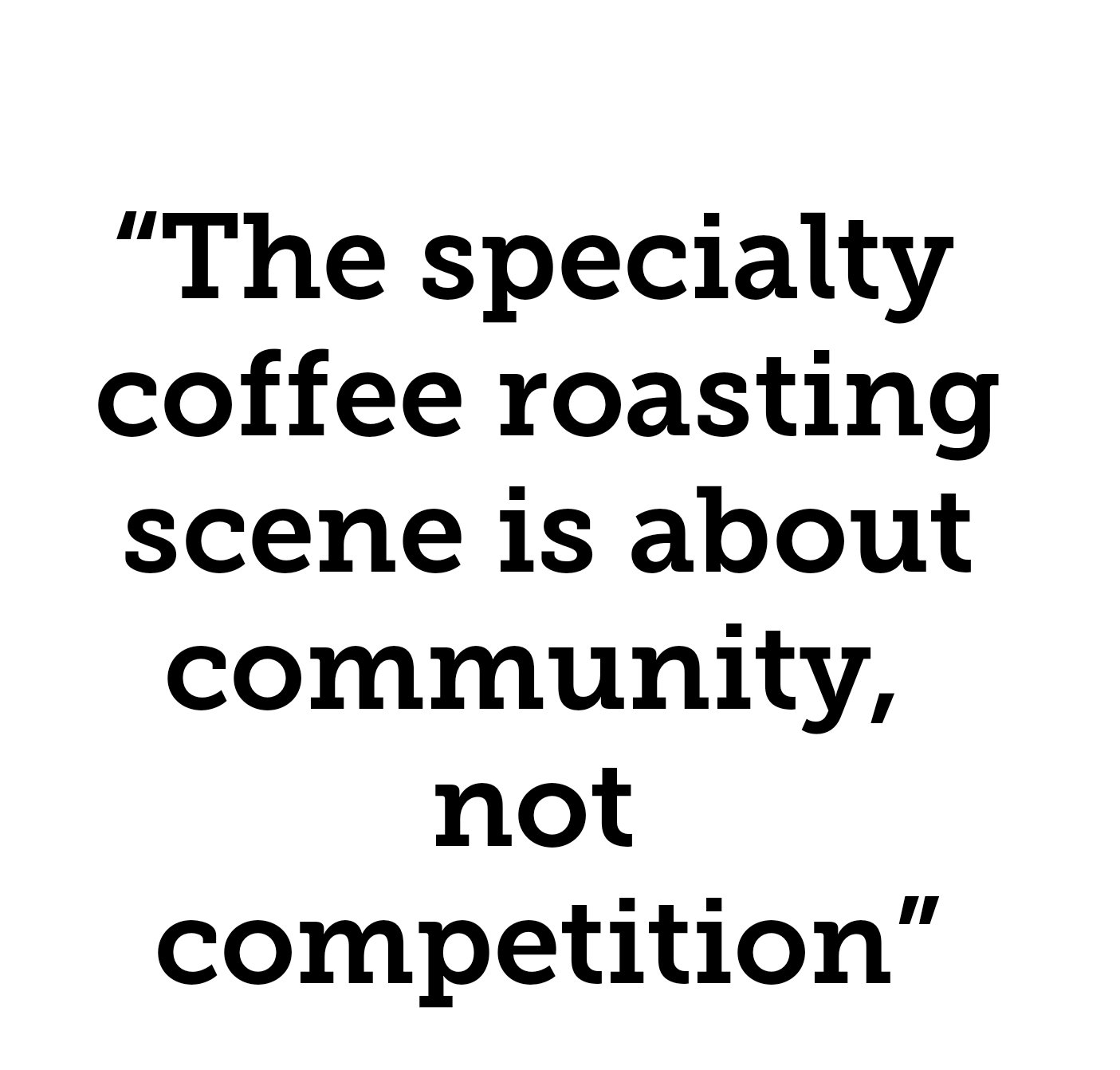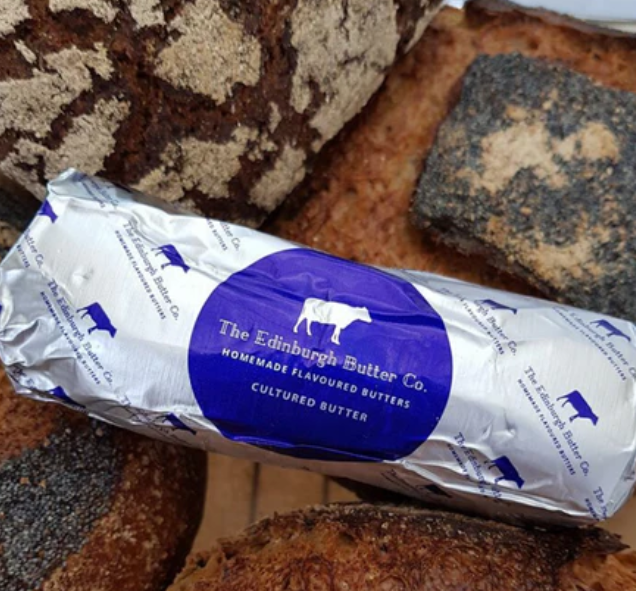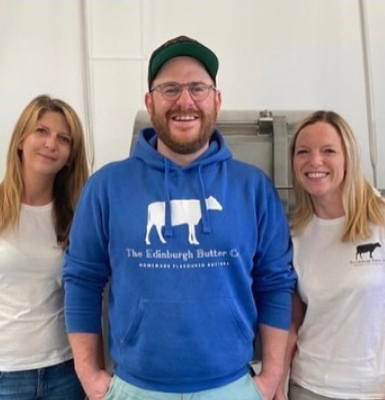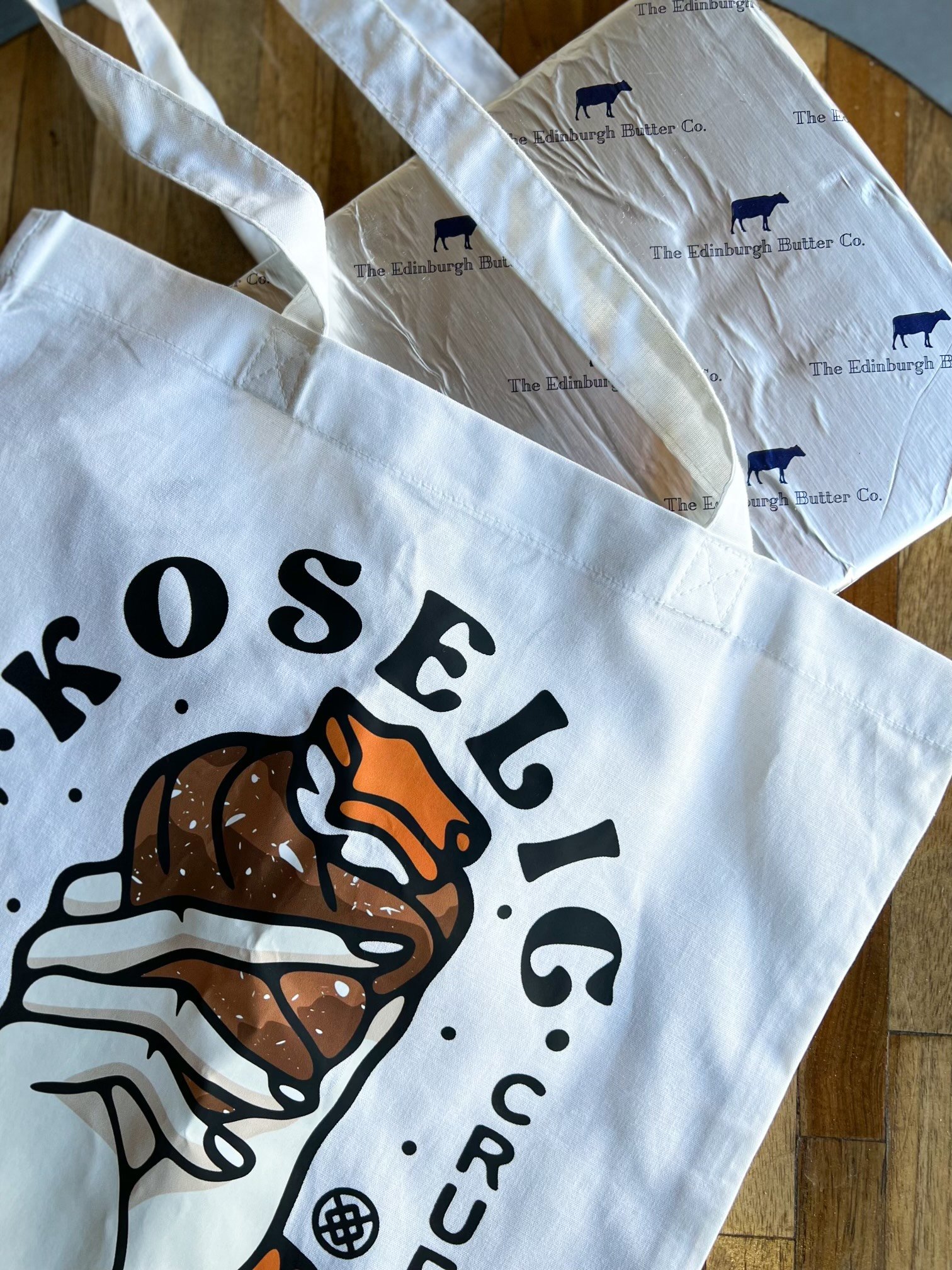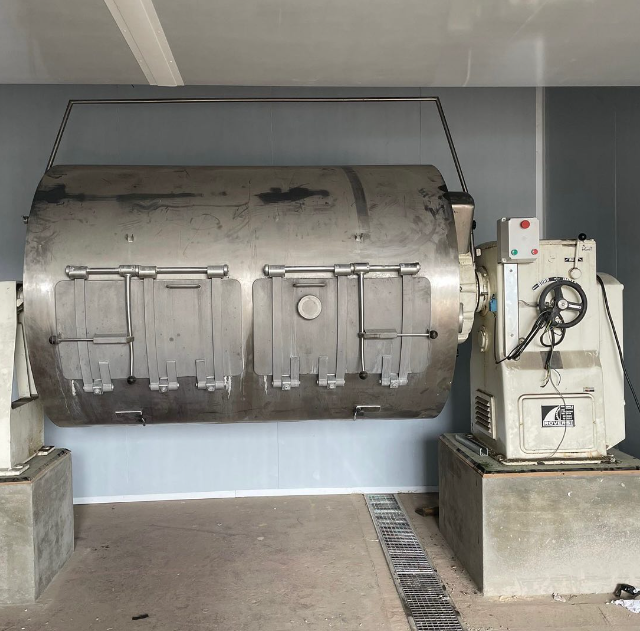Return of the Snack: Semlor at Koselig
March is officially the season of the Semla, and it’s back in a big way. Our Swedish Semla has been a popular item since our opening last August. After a hiatus over the winter period, the Semla is back and just as tasty as ever. As this month’s star bake, this easter treat is perfect when paired with a latte (or two)!
Pictured: Our traditional Swedish semla
So, what exactly is a semla?
A semla is not specific to Sweden but is in fact a tradition across each of the Nordic countries, as well as parts of Estonia and Latvia. At Koselig, we’ve opted for the Swedish version of the traditional Easter desert, which constitutes of a sweet brioche bun flavoured with cardamom, typically filled with homemade marzipan and fresh cream.
Pictured: Traditional Swedish semlor
In Sweden, the semla is not simply a delicious treat, but a significant aspect of the culture. Originally, semlor’s were eaten as a celebratory final treat before the Christian fasting period of Lent, known as Fettisdag, or Fat Tuesday. Semla directly translates to ‘plain wheat bun’, and to begin with, that’s all they were! What began as a plain bun soaked in hot milk gradually transformed into a delicious cardamom-infused treat filled with cream and almond paste, eaten as a desert every Tuesday between Shrove Tuesday and Easter. Today, there’s no need for reservations, and semlor’s are enjoyed year-round. Recently, semlor’s have become a firm favourite in the Swedish social phenomenon, Fika. Their association with family celebration, social occasions and Spring have rooted the semla deeply into the culture of Sweden, becoming somewhat of an institution in themselves. Every year local bakeries are filled with semlor, with a popular pastime involving a panel of expert bakers judging each semlor to find the best in town.
Recently, many bakeries have tried experimenting with new flavours and forms of the semlor. In 2015, Mattias Ljungberg of Tössebageriet bakery in Stokholm invented the ‘semmelwrap’, which takes the original semla bun, rolling it thinly and baking lightly to create a wrap which is then filled. The semmelwrap became a viral success soon after with many bakeries across the world offering their take on Ljungberg’s new classic.
Semlors at Koselig
At Koselig, we’ve tried various different forms of the semla. Most recently, we’ve had two different variations. In February we had our homemade blueberry jam semla, which was an instant hit. This month we’re highlighting the O.G semla in all its delicious glory: homemade marzipan with fresh cream on a soft cardamom-infused brioche bun, topped off with a dusting of icing sugar. Enjoy!
The apple of our rye: Shipton Mill at Koselig
Shipton Mill is a Gloucestershire-based flour mill keeping family at the core of its work. Both family-run and family-owned, the company prides itself on providing excellent quality flour for both professional bakers and home cooks. Similarly, at Koselig our approach to baking is completely artisanal and we are proud to create our bread and pastry traditionally, using the best quality ingredients.
Today we’re talking with John, the managing director at Shipton, who helped complete the restoration when the mill first opened. He chats with us about the origins of the mill and the importance of building a community that gives back to its people and environment.
Q: Have you always had an interest in food and farming?
I studied anthropology and worked in South America for a while before returning to start my family, however, what initially sparked my interest in the industry was the discovery of an old, derelict water mill. My friends and I decided to restore it using secondhand machinery and as we aren’t builders we definitely had a lot to learn!
Once the restoration was complete, we began milling for local bakeries. There were only two at the time in our local area and it was here where we learned the basics of flour milling - we were complete novices in the beginning! Traditional baking really fascinates me and is something I am deeply interested in. It was just a wonderful opportunity to explore and learn which has only continued. It’s an important thing for our family to always be curious and keep learning about flour, soil and the environment.
Q: Do you think it is important for food companies, such as yours, to have a philosophy at their core?
I think companies need to focus not on constant growth but on consolidating what they have built and should focus on ensuring that what they have remains at the best standard it can be. Our choices are about the quality of life and what we do on the planet. Companies have to start looking at their systems rather than just demanding growth. This will make the industry better as a place to work.
At Shipton, we look to continuously improve - growth isn’t a marker of improvement for us as we already are at our optimum size. We are more interested in the things we do and how we do it now; meeting people and working as a community. I’ve really enjoyed cultivating a community of bakers - it’s so much more interesting these days as new products are continuously emerging, and many bakers have different degrees and stories so it’s a whole new generation.
Pictured: John and friends hauling machinery in the early days of the mill
Q: How do you select your farmers?
Selecting our farmers is similar to selecting a great wine. Anyone can buy a low-cost, average and mass-produced wine and it’ll definitely be palatable, however, if you really want the very best - the top 5% - you have to search for a smaller company that has a heritage and traditional values.
We buy individually from each farm and select the ones with the best conditions and best soils, who make sure their fields are facing the right direction. We are able to be so thorough and selective with our selection process as we are a smaller mill, we definitely wouldn’t be able to do so if we were a bigger mill!
Q: Why do you think it’s important to work with smaller farms?
Largely these farms are family-run with loads of personality who are all concerned with giving back to the environment, just like we are. The larger companies take more out of the land than they take back, something we do not agree with. Smaller farms are far more empathetic and bring a whole different element. Like us, these farms have been involved in organic agriculture, working with organic growers long before it was a thing and even before certification.
The environment is really important to us, not only as a family and business but also for the next generation. I hope it will be a more sustainable and regenerating world for our grandchildren - a place where they can continue to enjoy the earth. It is so important we all do our little bit! In fact, we have planted 750,000 as part of our sustainability effort and promotion of biodiversity.
Q: What inspired you to start your charity ‘Breadwinners’?
Our initial idea was for people coming to this country who have limited language skills - we thought it would be a brilliant opportunity to give these people a helping hand by selling our bread and products at markets and retail outlets, enabling them to learn and practice English.
Through working on stalls and conversing with people from every walk of life, we hope the people Breadwinners works with are able to gain the skills and confidence needed to create a life for themselves. We also have a section of Breadwinners for young people named ‘Young Risers,’ where we also provide computer training. It’s a big thing for us to be able to give people the foundations to go on and make their own lives as they want. Currently, we are looking for more bakeries to join us in these endeavours!
It’s truly been hard to witness people arriving in this country, whose lives have been destroyed and are just expected to take to British life like ducks to water. To me, we are a generous nation and I believe it is our duty to continue this generosity through the company we have created. Any action, no matter how small really helps people in need and it feels great to be able to contribute through Breadwinners and Young Risers.
Q: What has been the most rewarding part of helping to create such a community?
Every day is so much fun and enjoyable - that’s the key to life, as I see it! If we can make a difference and help people it just brings me and the whole team so much joy :)
Q: Can you tell us a bit more about the baking workshops you run?
We run small workshops to encourage both professional and home bakers to adopt new skills and teachings. Although they’re only about six or seven people per session, it’s lovely to see people wanting to come down and have fun. We love that we can provide for both professional cooks and home bakers.
Q: Do you think keeping traditions, such as the ancient grains you use, alive in flour milling is important?
People have been milling here on our site for hundreds of years- there’s been a building here since 1086. It’s been a lifetime of work for our family and we’ve kept it a tradition to keep learning and growing together - the more we explore the more curious we become!
For many years we had been milling using a twentieth-century variety mill, which was also used for thatching. This lasted a long time, as the wheat was beautifully soft and made delicious flour. More recently, we have been exploring ancient grains, mainly Einkorn, Khorasan and Emmer, which is a prehistoric wheat that comes from the Middle East and has been cultivated over centuries in Europe.
We see it as being about helping people preserve the seeds and the memories of these traditional techniques. I think the main benefit is customer exploration, through experimenting and exploring ancient grains it encourages our customers to be curious about the origins of our flour.
Currently, we’re using spelt, which is Roman wheat and we’re about to start experimenting with Sicilian wheat which was grown during the Crusades, having been brought across Israel. Genuinely, we as a family enjoy connecting small communities across the world with the community we’ve helped establish here. There is a huge, broad spectrum in flour and milling, and it’s really fun for people to connect with small farms across the globe.
Q: How else are you moving towards sustainability?
Sustainable packaging - we use paper from certified sustainably managed forests that are FSC certified (the Forest Stewardship Council). We are also almost completely plastic-free and are currently looking for a sustainable alternative to our shrink wrap.
We use a wide range of Shipton’s flour in every single one of our breads, danish pastries and brioche doughs! Whilst the flour we use is absolutely fantastic, one of the things we love most about Shipton is their dedication to community - especially through their ‘Breadwinners’ charity, which has supported over 230 refugees through its programmes.
You can find out more about Breadwinners here.
Shipton Mill also offers baking courses - for both professionals and novices alike!
Follow Shipton on social media: Facebook, Instagram
Edited by Rebecca Phillips
Beans means Fika: the world of speciality coffee roasting
Perhaps a bit more informal than traditional British afternoon tea is the Swedish custom of Fika (fee-kuh) where friends, family or even colleagues get together for a hot coffee, usually accompanied by a sweet treat, like one of our traditional Swedish cinnamon buns.
However, Fika is much more than your average coffee break; it's a ritual promoting well-being, productivity and self-care. It gives people the opportunity to make time for friends and meet new people.
This sense of community is what first inspired this week’s blog guest to venture out into the world of speciality coffee roasting. Matt is a coffee roasting specialist from Fika, a Durham-based company that supplies us with our unique blend used in every cup of Koselig coffee.
We chat with Matt about how he and his business partner Lynn were inspired to start Fika based on their experiences in Melbourne and how the new ‘fourth wave’ coffee movement is bringing together quality products and social consciousness.
Q: How did the concept of ‘Fika’ inspire you to name the brand?
We met a Swedish couple during our travels around Cambodia and Thailand who introduced us to the custom of Fika. We found the connection between coffee, socialising and relaxing very interesting and decided it would be a unique name for our speciality roast. We didn’t really want to name the company after a location, although we are based in Durham, but rather a feeling associated with our product.
Q: What experience first attracted you to the world of specialty coffee roasting?
Speciality coffee roasting is very different and not as well-established as traditional roasting. Myself and my partner, Lynn, were not working in the coffee industry when we visited Australia and initially our interest in specialty coffee roasting began after a panic that we wouldn’t be able to have our favourite coffee after we returned home! The Aussie approach to coffee roasting proved interesting to us however, and we began barista training as a hobby.
After visiting a café in Manchester which had an in-house coffee roaster, we became interested in the actual process of roasting. Eventually I got in contact with Rounton coffee roasters and began training with them.
Q: What about the Australian approach was more appealing than the traditional European style?
Speciality coffee roasting is all about highlighting flavour - this differs greatly from the traditional Italian approach, which is solely about producing the darkest roast and providing that bitter flavour which is so popular in the European market.
Speciality roasting focuses on a more medium roast, which allows for more flavours to come through, hence why specialty roasts have unique flavours, for example the chocolate and berry flavoured roast used in Koselig. This process of roasting is more scientific and tricky to get right.
The Australian approach also pushes the message that the flavour of the roast should play more of an important role in the quality and not just the strength. The unique flavour we give to our coffee is what we consider to be the most significant aspect of our roasting process.
Video: Fika in action at Koselig
Q: What impact did the pandemic have on the business?
A surprisingly positive one, if we had started before the pandemic hit it would have probably been a different story. We started Fika during the first lockdown. With everyone at home spending more time shopping for coffee, it meant we were able to promote our roasts online. Social media posts about our coffee also allowed our sales to grow. As restrictions were relaxed, word-of-mouth became a game-changer for us.
Lynn worked in marketing and, through her connections to a Scottish media management company, our product marketing, image and design have all been developed further. Although we initially just wanted to get through Covid, we are now supplying more businesses than ever!
Q: How do you select the farmers who provide their coffee beans?
Sourcing as directly as possible is really important, not only in the world of specialty coffee roasting but to myself and Lynn personally. I am in good contact with the nephew of a Brazilian coffee farmer and he brings their family's coffee beans over to the UK market to sell. It is important that we know our farmers, their community, how much they are being paid and how they are treated.
This differs from bigger, chain coffee companies that don’t look into these aspects. In the future, we would like to hire more people to explore this for the company as we expand. Traceability and ethics are just as important an aspect of specialty coffee roasting as the final product.
Following the 2021 hurricane in East Timor, we donated a percentage of our sales made from our East Timor coffee beans to the relief efforts. Community in general is a really big thing for us at Fika, we see the specialty coffee roasting scene as being about community, not competition.
Q: What is the most difficult aspect of coffee roasting and supplying?
In my opinion, the hardest part is the farmers job. In order for the coffee to be classed as a ‘specialty grade’ it takes an incredible amount of work, so the farmers work especially hard.
Q: Why are Koselig and Fika a good match?
We described Koselig as being a ‘specialty bakery’ - just like Fika is a specialty roaster. Both our businesses are dedicated to providing high quality products, as well as the entire ethos surrounding relaxing and enjoying coffee.
Our blend, which was a collaboration between myself and David, is unique to the bakery. I’m desperate for a Koselig to open in Durham!
Q: Finally, what is next for Fika?
Coffee roasting is of course our major interest, however, we are also keen to build an educational side to the business which results in us being able to train our customers how to roast and serve coffee. We’d like to offer this in our roastery as well as the cafés we supply.
We are also looking to expand our staff in the future as the company continues to grow and, of course, create product merchandise such as bags and t-shirts, similar to those at Koselig.
Find Fika’s products on their website and follow them on social media: Facebook, Instagram
Edited by Rebecca Phillips
Dear Dairy: The Edinburgh Butter Co.
Welcome to a new series on our blog, where we sit down with our suppliers and chat with them about their unique products and what it’s like to run an independent business. Today, we’re talking to Chloe, sales director and ‘chief croissant taster’ at the Edinburgh Butter Company, who supplies the butter used in all of our delicious laminated pastries.
Much like at Koselig, the Edinburgh Butter company was established by family and friends. Chloe’s sister, Hilary, and her husband Nick first got the idea following a trip to Australia, where they were inspired by the artisan food market and different types of cultured butter there.
They began four years ago with the production of their popular salted cultured butter logs, mainly supplying local hospitality and catering businesses. They were then approached by the famous Balmoral Hotel in Edinburgh, which is where they began to create their unsalted cultured butter sheets. Working alongside the talented bakers and chefs at the hotel, they carefully developed the best butter recipe in the industry, providing the perfect “UK alternative to French butter sheets”, which we’re sure you’ll agree with if you’ve ever tried one of our bakes!
Q: Can you tell us a bit more about the history of the company? Are any of your family involved in the farming or dairy industry?
Surprisingly not! Although my family have always been interested in food, even before the company was set up my sister and her husband were running a local supper club. At the moment we are purely focused on our butter production and don’t intend to expand into other areas of the food industry soon 🙂
Q: What is the most rewarding aspect of what you do?
Definitely selling our products face-to-face and the opportunity to travel across the UK visiting bakeries and seeing our products being used. We have built a community with our customers and it’s rewarding to watch their businesses grow, which is reflected in the increased demand for our products.
Q: What has been the biggest challenge for the company so far?
As a business operating in the UK, circumstances such as Brexit or the war in Ukraine have made it tough for us to remain price competitive in the current market. The last six months have been the most difficult for the company, especially as we have been in the process of moving to a larger facility and meeting higher demands.
Key ingredients in our products are also becoming increasingly expensive to source. In terms of producing our butter, the cream content is vital in order to maintain the flavour and fat content and if we are unable to manage this due to a surge in prices then our product can be negatively impacted.
During the pandemic, we also had to briefly shut the factory which affected our ability to supply. On a positive note, however, the increase in café’s and bakeries since then has seen a huge increase in demand for our product - hospitality is definitely an industry we rely on!
Q: Does sustainability play an important role in your business?
Yes! Even before production began, we knew we wanted to move away from using polystyrene as insulation for shipping products. Instead, we use sheep wool, which provides far better insulation for our products as it regulates temperature and keeps them warm in winter and cool in summer. We ship our butter to businesses farther afield including Northern Ireland and the Orkney Islands and it is still frozen after seventy-two hours!
Q: How do your products differentiate from others in the market?
We offer a completely unique product, the flavour in our butter can only be found in a handful of cultured butter producers across the whole country. Our products are very artisan in comparison to a lot of European companies; we work traditionally with high-quality ingredients and don’t mass produce.
We really wanted to create a product that goes “beyond taste”, so to speak, and we have spent a lot of time curating formulas for the most effective water and fat content that delivers our signature flavour. Cultured butter is made by churning fermented cream containing live culture, this is what results in the rich, full flavour of our butter, which is perfect for creating artisan bakes!
The Edinburgh Butter Company was awarded ‘Family Business Entrepreneur of the Year’ at the 2022 Great British Entrepreneur Awards! We’re extremely grateful to be able to use their amazing products and support an independent business like ourselves.
Follow The Edinburgh Butter Co. on social media: Facebook, Instagram
Edited by Rebecca Phillips




